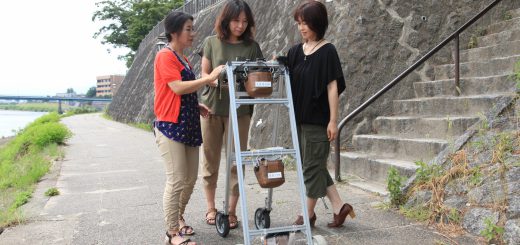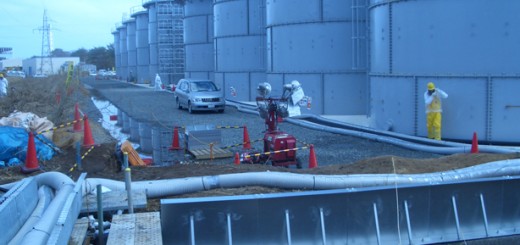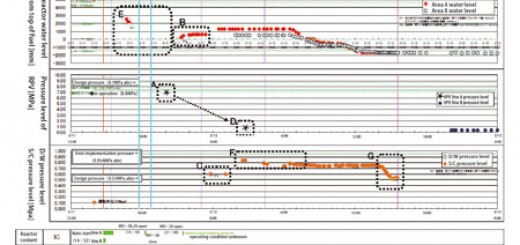The Fukushima Daiichi disaster and human rights—UN report highlights basic deficiencies in Japanese policy and practice
By Caitlin Stronell (CNIC)
Last September 26 through October 7, the Special Rapporteur on the human rights of internally displaced persons, Cecilia Jimenez-Damary, made an official visit to Japan to investigate the situation regarding the people displaced by the Fukushima Daiichi nuclear disaster and her report was presented to the fifty-third session of the Human Rights Council in July this year. In compiling this report, the Special Rapporteur spoke with officials from various ministries, including the Justice and Environment Ministries, the Reconstruction and Energy Agencies as well as several members of the Diet and former government officials who were in charge of disaster response in 2011. She also met with prefectural and municipal authorities, including in Fukushima, Kyoto and Hiroshima, Aizu-Wakamatsu, Okuma, Futaba and Iwaki. Of course, she also spoke with displaced persons and communities in Fukushima, civil society organizations, human rights activists, lawyers, writers and academic specialists in various fields. Her report is 20 pages long, of which 8 pages are detailed recommendations to the Japanese government on how to improve the human rights situation of the Fukushima evacuees.
An evacuee is an evacuee—‘mandatory’ and ‘voluntary’ evacuees must be treated equally
One of the recurring themes of the Special Rapporteur’s report is the distinction between ‘mandatory’ and ‘voluntary’ evacuees. She describes the background as to why many people decided to evacuate ‘voluntarily,’ that is, without being ordered to do so by the government. In the immediate aftermath of the meltdowns, information was confused and difficult to convey to residents and even local government authorities on the ground, due to the earthquake and tsunami damage. Moreover, in an attempt to reduce panic, the government downplayed the extent of damage and withheld detailed information about radiation spread. Under such circumstances, many citizens had to make their own decisions about evacuating instead of waiting for ‘haphazard and delayed official evacuation orders.’
the Special Rapporteur’s point is that even though it is completely understandable that people feared for the safety of themselves and their families and thus decided to evacuate immediately, these so called ‘voluntary’ evacuees have since been subject to discrimination regarding compensation and the duration of assistance. She gives detailed examples to show that the amount of various compensation payments for ‘mandatory’ evacuees is higher than that of ‘voluntary’ evacuees. In her conclusion, she “strongly recommends that the discriminatory distinction between ‘mandatory’ and ‘voluntary’ internally displaced persons be completely eliminated in all administrative and legal policies and their actual implementation.”
Moving beyond reconstruction: the need for a rights-based approach
This is the title of Section D in the report and in this section the Special Rapporteur expresses her concern that the Japanese government’s focus on the reconstruction and re-population of Fukushima is problematic as it seems to be taking priority over the evacuees’ human rights.
Firstly, the Special Rapporteur claims that there are problems with the three criteria which the government bases lifting evacuation orders on:
- The annual cumulative radiation dose is set at a maximum of 20 mSv. Like previous Special Rapporteurs before her, Ms. Jimenez-Damary questions this standard, which she points out, according to the International Commission on Radiological Protection (ICRP), is only applicable to adults with occupational exposure to radiation, certainly not children. The normal limit under Japanese law is 1 mSv, but this does not apply to the disaster affected area which is still under a ‘nuclear emergency.’ In order to respect the human right for everyone to live in health and safety, evacuation orders should only be lifted when radiation doses have been reduced to 1 mSv/y.
- Infrastructure and services should be reestablished. The specific example of Futaba Town is given, where evacuation orders were partially lifted in 2020 even though there is no school or hospital. There is concern that in other places too, evacuation orders have been lifted before services have been adequately restored. This criterium is supposed to ensure the human right of access to services, but there are cases where the government does not follow its own criteria.
- Consultations are held with residents. The evacuees who the Special Rapporteur spoke with said that what the government deemed ‘consultations’ were meetings where the authorities informed them that the evacuation orders would be lifted but there was no way they could disagree with this decision or even have any input. This issue is also highlighted in the recommendations under the ‘Right to Participate’ where the Special Rapporteur recommends that “Efforts to engage internally displaced persons (IDPs) and residents of disaster-affected municipalities must go beyond merely informing them of preconceived plans. [She] recommends direct consultations with an intersectional range of IDPs and modifying approaches to assistance, compensation, reconstruction and durable solutions based on their feedback.”
Secondly, the Special Rapporteur is concerned that after lifting evacuation orders, assistance is cut to those evacuees who do not wish to return but financial incentives are provided to returnees. A human rights approach requires that governments support all evacuees to voluntarily choose whether to return to their areas of origin or settle elsewhere. However, “making assistance conditional on specific choices” amounts to ‘tacit coercion.’
Despite this pressure on evacuees to return, many are not, but rather than support them and address the underlying reasons why they are not returning, the government has adopted a policy of trying to attract new residents and spending billions of yen on developing new industries. This section concludes with: “Instead of focusing on the prefecture’s repopulation, the Special Rapporteur recommends prioritizing measures to ensure that internally displaced persons who do not wish to return can achieve a durable solution outside the prefecture, while residents of and returnees to the prefecture can enjoy the full spectrum of their human rights.”
Japanese Government’s response
The Japanese Government was given a copy of this report in advance and issued a paragraph-by-paragraph response on 23 May 2023. Many of the corrections requested by Japan are regarding data or factual details but what is most disappointing is the Japanese government’s flat denial of the larger human rights issues that are mentioned in the report.
For example, Japan denies that there is any arbitrary distinction between mandatory and voluntary evacuees. As the Special Rapporteur also mentions, laws created to support the victims of the Fukushima Daiichi disaster do not discriminate but the reality, which is detailed in the report, shows that concrete outcomes of policy have put voluntary evacuees at a disadvantage.
Regarding the point that making assistance to evacuees conditional on their specific choices amounts to ‘tacit coercion,’ Japan requests that the word ‘coercion’ be deleted because it is not mentioned in the ‘Guiding Principles on IDPs,’ going on to explain that “assistance is not being withheld from those in displacement, it is provided depending on the preference of evacuees whether to return or not.” It seems to me that this is just playing with words.
By far the most aggravating claim by the Japanese government is that they are ‘responding sincerely to suggestions received at consultative meetings.’ The Special Rapporteur mentions throughout the report that mechanisms to allow the evacuee’s input into decisions that affect their lives directly, are sadly lacking and her recommendation on the ‘right to participate’ is, in my opinion, one of the key recommendations which, if applied, could really make a difference to so many lives. Yet the Japanese government insists that, as Japan is an indirect democracy, the will of the people is expressed by their elected lawmakers in the Diet and that is sufficient, as it is impossible to hear the opinions of every single citizen. For government authorities to actually listen to their citizens before decisions are made instead of trying to convince them that the decisions government has already made are correct, will require not only institutional and mechanical changes, but a fundamental change in attitude and a much deeper understanding of the meaning of human rights.



